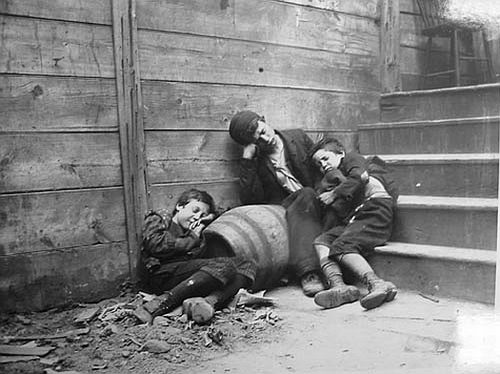The Irresistability of Market Forces in 1890 New York City
In his book American Colossus: The Triumph of Capitalism 1865-1900, H. W. Brands tells the story of Danish-American photographer and journalist Jacob Riis, who wrote How the Other Half Lives. From H. W. Brands, pp. 296 and 298:
“The law has done what it could,” Jacob Riis wrote… Riis had found his way back to New York as a journalist, a first of the breed of investigators derided, then respected, as “muckrakers.” The label fit Riis particularly, for his investigations focused on the lives of those on the mudsill of society. Having dwelt there himself, he felt compelled to bring the plight of the lower classes to view. “Long ago it was said that ‘one-half of the world does not know how the other half lives,’” he wrote in 1890. “That was true then. It did not know because it did not care.” It might not care still had the life of the lower half not intruded increasingly on that of the upper. Peasants in the Old World could starve invisibly, far from the manor; poverty in America elbowed wealth every day on the streets of New York and other cities.
Yet wealth looked away and hurried by. Riis proposed to make it stop and look….
The Riis tour continued to “The Bend” of Mulberry Street, the most noisome of New York’s slums. Here reformers had been at work for decades, trying to enforce the housing laws; here they had consistently discovered that the laws of supply and demand trumped the statutes of mere legislators. Landlords resisted the changes, claiming the right of property to a profit. Tenants resisted, for fear of displacement by the higher rents the changes would produce. Nature, it seemed, or at any rate capitalism, conspired to populate every nook and cranny of the Bend. “Incessant raids cannot keep down the crowds that make them their home. In the scores of back alleys, of stable lanes and hidden byways, of which the rent collector alone can keep track, they share such shelter as the ramshackle structures afford with every kind of abomination rifled from the dumps and ash-barrels of the city”
Capitalism had created the Bend, and it thrived within the Bend.
